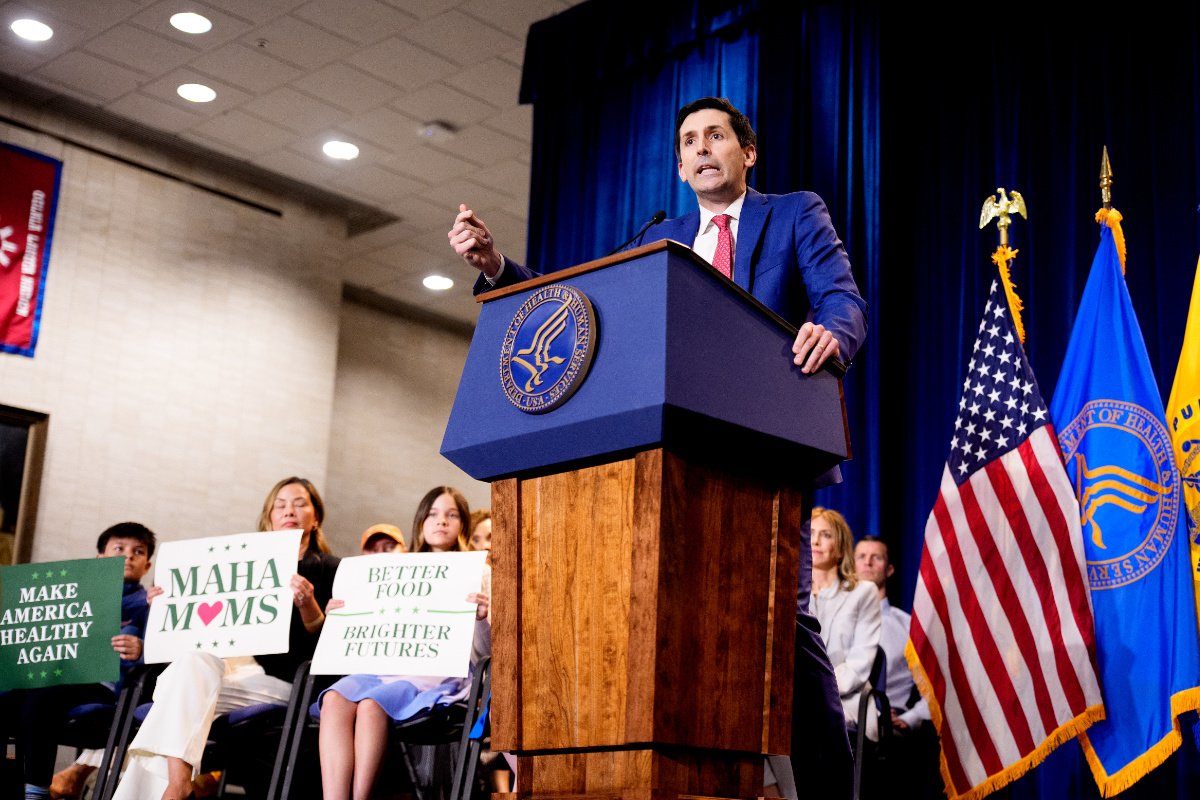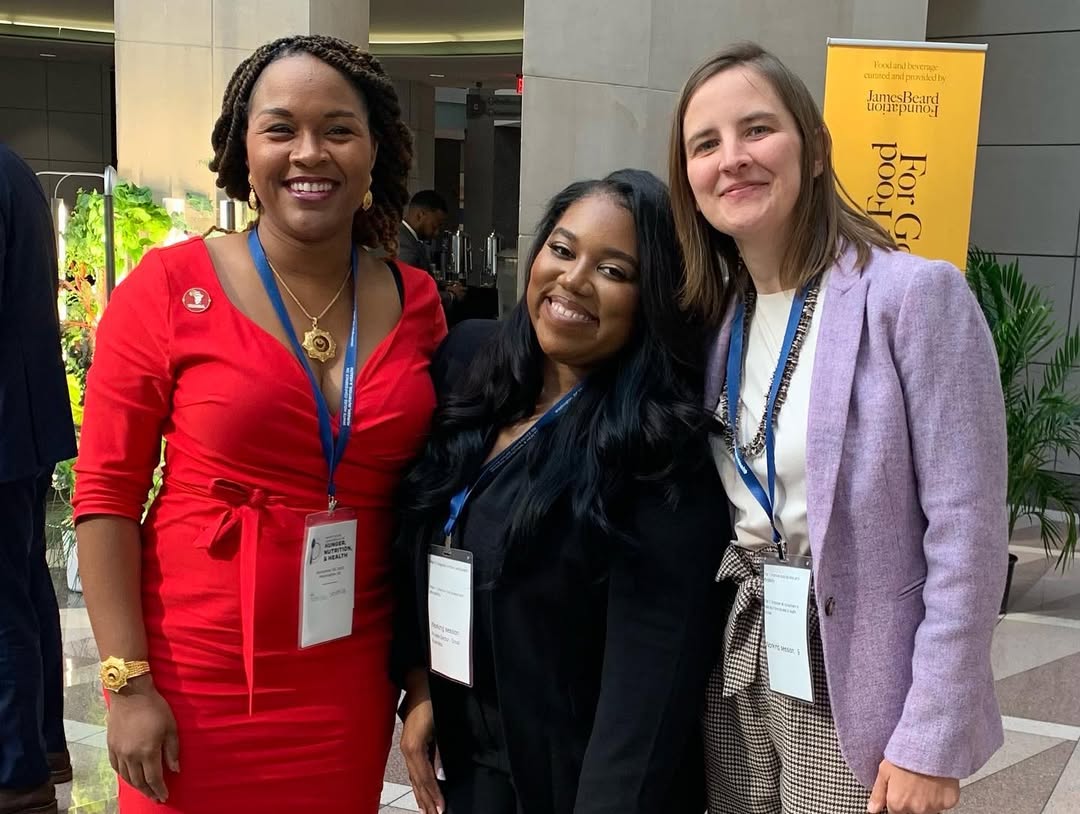The MAHA Institute’s work on the ground in Washington could impact policy on food ingredients, agricultural inputs, and overall health.

The MAHA Institute’s work on the ground in Washington could impact policy on food ingredients, agricultural inputs, and overall health.
May 16, 2025

Calley Means speaks during a news conference at the Health and Human Services Department on April 22, 2025 in Washington, DC. (Photo credit: Andrew Harnik, Getty Images)
Supporters of the Make America Healthy Again (MAHA) movement gathered in Washington, D.C. yesterday to launch a new organization, the MAHA Institute, dedicated to changing and championing federal policies that could impact food ingredients, agricultural inputs, and overall health.
Expand your understanding of food systems as a Civil Eats member. Enjoy unlimited access to our groundbreaking reporting, engage with experts, and connect with a community of changemakers.
Already a member?
Login
“There are thousands, tens, hundreds of thousands of people around the country who care deeply about this, who want their children to be healthier, who care about their families, who want to improve the system,” said Mark Gorton, president of the institute. “The MAHA Institute is serving the function of helping to coordinate and channel the energy of all of these people around the country and connect them with people in the government.”
Many of the people in the room were the same individuals and groups that supported Robert F. Kennedy Jr.’s presidential campaign and then helped propel Donald Trump into office after Kennedy aligned himself with Trump.
Gorton and his partner Tony Lyons, now the MAHA Institute’s chairman, previously co-founded a Super PAC dedicated to supporting Kennedy. Lyons is the founder of Skyhorse Publishing and a close ally of right-wing media personality Steve Bannon. Other speakers included Mary Holland, CEO of Children’s Health Defense, the advocacy organization founded by Kennedy; Zen Honeycutt, founder of Moms Across America; and Montana rancher Bryan Mussard. Attendees included regenerative farmers, student activists, and school lunch reformers.
In addition to concerns about vaccine schedules and ingredients, speakers pointed to a wide range of food-related issues they believe are contributing to America’s chronic disease epidemic: genetically modified foods, pesticide exposures, seed oils, sugar, and other ingredients in processed foods. “It’s not about vaccines or drugs or foods, it’s about the toxins that are in them,” Lyons said. Several also described a situation in which the federal government has hidden information on those toxins at the behest of agriculture, pesticide, and food companies—an assertion that mixes the very real influence those companies have in D.C. with overarching conspiracy theory thinking— and said they trusted the Trump administration to turn that ship around.
In an interview with Civil Eats, Gorton said the MAHA Institute will work to connect people working on the same issues and do more traditional lobbying on legislation. And he said they’ll support the work of agencies like the Department of Health and Human Services (HHS), which Kennedy now runs, in achieving MAHA goals. “The number of actual, true MAHA supporters at the top of these agencies is maybe 75 people across an HHS that has 60,000 employees, and their job is unbelievably daunting, because these bureaucracies are highly resistant to change,” he said.
When asked about whether some Trump administration actions, such as the EPA rolling back limits on ‘forever chemicals’ in drinking water and the USDA canceling a program that helped local farms get fresh produce into school meals, run counter to the movement’s goals, he dismissed any contradiction and said he was “extremely happy” with the administration so far. “I think there really is a commitment to the larger mission, and changing the government takes time,” he said.
Honeycutt, on the other hand, said she’d been disappointed in some Republican senators’ pushback against pesticide reforms after the MAHA movement supported their campaigns and that restoring regulations on forever chemicals in drinking water is incredibly important to her. “We’re shocked and dismayed that these Republican elected officials and some officials within the EPA are going against Trump’s call to make America healthy again, and we hope that they will see that this is a massive step backwards and that they will listen to the people who are calling for better policies on these toxic chemicals that are clearly harming Americans and making us sick.”
A group of 79 Republicans recently sent a letter urging Kennedy and other agency heads not to recommend restrictions on pesticide use in the MAHA Commission report, expected to be released on May 22.
Calley Means, a MAHA movement fixture who is now a special advisor to Kennedy within HHS, alluded to that tension in his remarks. “As the wins start stacking up—and they will be stacking up at an increasing pace—I can tell you that there’s a thing, an energy around this town, around the country, to divide the MAGA and MAHA movements, but it’s not going to happen,” he said. “This is a powerful revolutionary coalition of people that are going to change American politics.”

July 30, 2025
From Oklahoma to D.C., a food activist works to ensure that communities can protect their food systems and their future.
Leave a Comment